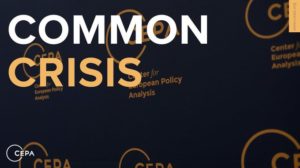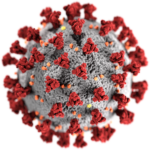
CEPA
If democracies cannot cooperate to stop the spread of the coronavirus, the result could be a “decisive global shift” toward China’s authoritarian model, one analyst suggests.
Three factors appear to have a greater bearing on a country’s success than its type of regime, writes Rachel Kleinfeld, a senior fellow in the Carnegie Endowment’s Democracy, Conflict, and Governance Program and founding CEO of the Truman National Security Project:
- LESSONS LEARNED FROM THE SARS EPIDEMIC: Taiwan, South Korea, Hong Kong, and Singapore differ in their governance systems, but all took away key lessons from SARS: They developed speedy tests soon after the coronavirus began spreading and undertook broad testing to get one step ahead of the virus. All had laws in effect or to invoke during emergencies that allowed extraordinary tracking of where individuals infected with the coronavirus had been, and they relaxed privacy protections to spread that information widely and alert people to be tested. …
- LEGITIMATE POLITICAL SYSTEMS: The success of governmental social control depends more on voluntary compliance than on government enforcement. In the Cold War era, totalitarian systems were known for their neighborhood spies, gulags, apparatchik bureaucrats, and centralized, highly ideological states where citizens distrusted their government and one another. But today, trust no longer breaks down clearly by government type.
 STATE CAPABILITY: A government’s capacity—its ability to intervene competently in arenas from communication and health provision to quarantine maintenance and equipment manufacturing—is only loosely related to its GDP or overall type of political regime. Some poorer countries have highly educated populations and stronger than average systems of health and enforcement. Authoritarian, lower-middle-income Vietnam, for instance, was able to carry out a similar strategy, with similar success, to that of wealthier, more democratic South Korea…..
STATE CAPABILITY: A government’s capacity—its ability to intervene competently in arenas from communication and health provision to quarantine maintenance and equipment manufacturing—is only loosely related to its GDP or overall type of political regime. Some poorer countries have highly educated populations and stronger than average systems of health and enforcement. Authoritarian, lower-middle-income Vietnam, for instance, was able to carry out a similar strategy, with similar success, to that of wealthier, more democratic South Korea…..
 “At this time of unprecedented crisis caused by the Covid-19 pandemic – including medical emergencies, social isolation, economic recession, and rising autocratic assertiveness – the NED wants to assure all of its grantees, partners, and friends that it is open, working, and adapting to the new challenges we face,” said Carl Gershman, (left), president of the National Endowment for Democracy (NED). The endowment “fully understands the tremendous human, social, economic, and political costs of this terrible new period,” he added, promising “undiminished solidarity.”
“At this time of unprecedented crisis caused by the Covid-19 pandemic – including medical emergencies, social isolation, economic recession, and rising autocratic assertiveness – the NED wants to assure all of its grantees, partners, and friends that it is open, working, and adapting to the new challenges we face,” said Carl Gershman, (left), president of the National Endowment for Democracy (NED). The endowment “fully understands the tremendous human, social, economic, and political costs of this terrible new period,” he added, promising “undiminished solidarity.”
As new laws broaden state surveillance, allow governments to detain people indefinitely and infringe on freedoms of assembly and expression, they could also shape civic life, politics and economies for decades to come, writes for the New York Times:
The laws are taking swift hold across a broad range of political systems — in authoritarian states like Jordan, faltering democracies like Hungary, and traditional democracies like Britain. And there are few sunset provisions to ensure that the powers will be rescinded once the threat passes.
“We could have a parallel epidemic of authoritarian and repressive measures following close if not on the heels of a health epidemic,” said Fionnuala Ni Aolain, the United Nations Special Rapporteur on counterterrorism and human rights.
 Over time, emergency decrees permeate legal structures and become normalized, said Douglas Rutzen, the president of the International Center for Not-for-Profit Law in Washington, which is tracking new legislation and decrees during the pandemic.
Over time, emergency decrees permeate legal structures and become normalized, said Douglas Rutzen, the president of the International Center for Not-for-Profit Law in Washington, which is tracking new legislation and decrees during the pandemic.
“It’s really easy to construct emergency powers,” Mr. Rutzen said. “It’s really difficult to deconstruct them.”
If developed democracies cannot pull together to stop the spread of the virus, manufacture the goods the world needs to fight it, and make plans to jump-start the global economy, China will do so, Carnegie’s Kleinfeld adds. On the other end of this crisis, the result could be a decisive global shift toward its authoritarian model.







